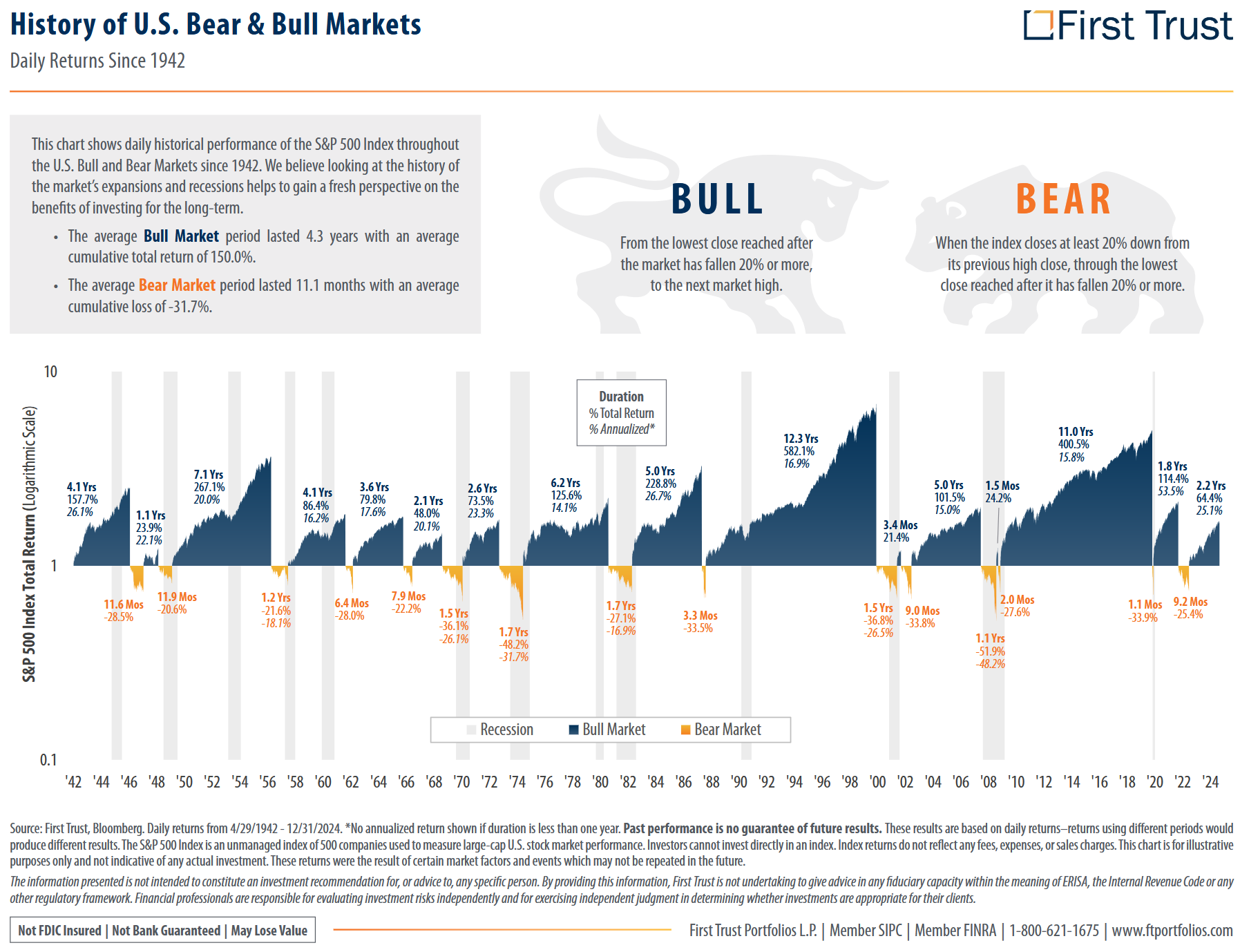What to do in uncertain times
It has been an exciting week for investors, with the U.S. markets posting a 10% loss over the last two days.
This can be particularly challenging, especially for those new to investing. But these are the times that develop you as a wealth builder!
With many new subscribers to the blog (thanks!), I thought I would share what I have done in the past on “Really Bad Days” in the market.
First, is to keep perspective. I appreciate this chart that highlights the historical performance of the market. This perspective helps take me out of the short-term fear and focus on long-term market cycles:

Then it is helpful to keep a few facts in mind:
- Market dips of 2% or more occur about five times a year.
- Markets rise 3 out of every 4 years.
- Selling low and buying high does not work.
- Avoid making important decisions when in an emotionally charged state.
Still, it never feels good to see your accounts losing money. It is also never a sure thing that what we are going through this time will be the same as all the other times the market has declined and then recovered.
It is also challenging to invest consistently during uncertain times. That is why I have always focused on “Dollar Cost Averaging” and automating my investment contributions. Dollar cost averaging means you buy at set times and average into the market with your dollars.
This could be $100 every two weeks, or once a month, or whatever is best for your situation. My goal has always been to buy more assets, no matter what the "weather" is in the market. Rain or shine, I remain focused on acquiring high-quality investments. Try to remove the manual decision of investing or not from your hands.
This helps remove the temptation to say "I'll skip this investment" and start the exhausting cycle of "should I put this money in now? If not now, when? How do I decide?"
This consistency is the key to success, as it keeps your dollars growing over the long term. This is especially important if you are young and plan to invest for the next 15, 20, 30 years or more.
However, you need to do this in a way that aligns with your risk appetite. If you are losing sleep at night over your losses, it may be a sign that you are too exposed to risk.
One of the best ways to determine how much risk to expose yourself to is by answering one of the most important questions: "How much do I need my money to earn by the time I retire?" This will tell you exactly how to invest to meet your goals. If you need less or you have more time, you don't have to take as much risk. In my video next week, I will break down how to get to this number.
Investing aside, when companies are performing poorly (which is what the market is comprised of), there are real impacts on people's jobs. So, even more important than building your long-term wealth is making sure that you can weather the economic storms. Here are some goals I have had during times like this:
- Aggressively build a safety net of at least 6 months of living expenses. I actually target more. If you don't have a safety net yet, prioritize this before you begin investing aggressively. Building this safety net can take time, but it is critical to work on building it. It gives you breathing room in the here and now that, if something were to happen, you would have the gift of time.
- Have a backup plan for bad situations.
- Worried about potentially losing a job? Start networking ahead of time. Build a new resume - I like https://www.tealhq.com/ for an AI-driven resume builder. Start thinking about alternative income streams that could help you in the event of a job loss.
- Consider how you manage your cash flow. Try to avoid overextending yourself and keep your mandatory monthly bills to a minimum. You want to avoid a shock that if income stopped, you aren't signed up for large expenses.
- Ensure that your savings are in secure investments that can be accessed in an emergency.
Finally, to end on a positive note, if we go back to the goal of wealth-building, which is to use money as a tool to empower your life, it's important to remember that we live life in the here and now. Don't become so consumed by money that it distracts you from actively seeking ways to enjoy life as it is. This is easier said than done, but it is a skill that helps make us more sustainable. If money is stressing you, remember to be kind to yourself, even in small ways: going for a walk somewhere you enjoy, reading a book, practicing your faith, or spending time with friends and family.
Wishing you a great start to your weekend!
Greg
Member discussion